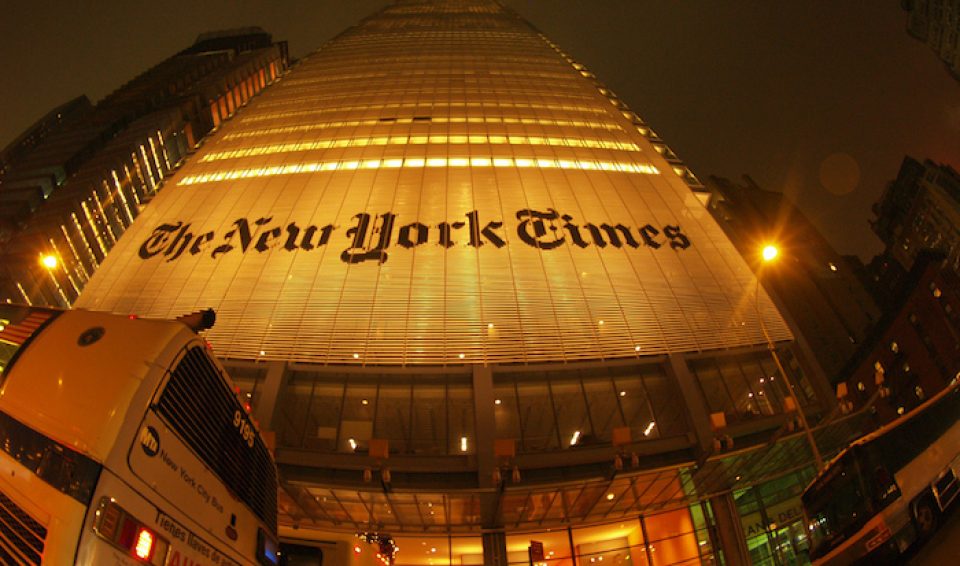By Kevin Rafferty, Source : scmp.com
Most of the glories of the erstwhile British Empire have crumbled to dust or been torn apart by up-and-coming countries and industries. In prosperity, industrial progress, even sporting prowess in cricket, football and rugby, which Britain gave to the world, one former colony after another, from the US to India and Singapore, has left the UK a lame laggard.
Until now, there was just one area where Britain remained the nonpareil – in providing honest, independent, globally focused news and commentary. Stand up proudly, the BBC.
Or maybe not: the BBC’s worldwide coverage is increasingly losing its way, suffering from budget cuts, dumbing-down of content, loss of news priorities and a sacrifice of a true world view. Some days, the news content of the BBC World television service is more tabloid than Britain’s infamous “red-top” populist newspapers.
For example, Global, a news programme going out at midnight Hong Kong time last month, devoted 11 minutes to the fracas between Top Gear host Jeremy Clarkson and one of his production team over a failure to provide hot food after a day’s filming, and the presenter’s subsequent suspension. Nothing was said about the millions of pounds the BBC may lose if it fails to deliver commissioned Top Gear programmes to TV stations worldwide.
Why does BBC World label its programmes Global, Impact or Newsday? Does it mean other programmes are not global, don’t have an impact or are not newsworthy?
Clarkson has millions of fans, but in the daily chronicle of important issues of life and death worldwide, does speculation about how he may have abused a colleague merit top billing on BBC World news?
It is not an isolated item. BBC World is becoming increasingly tabloid, looking for immediate gratification, chasing fire engines, such as press conferences which may be irrelevant, without mature news judgment. Last week, it spent too long at a rambling press conference where French investigators fobbed off questions about what the data recorder said about the doomed Germanwings flight that crashed in the Alps – while New York Timesreporters were uncovering the real story that the co-pilot had deliberately crashed the plane.
Having been brought up on the old BBC World Service radio – sometimes boring, sometimes pressured by government, but usually reliable and always global-minded – I feel enormously sad about the resort to tabloid journalism.
In every half hour of BBC World news, there are about 22 minutes of actual news, padded out by weather, a few adverts and endless smug self-promos about features “only on” the BBC. One presenter purrs “Welcome to my show”, even though it is supposed to be news. Another young woman, hired from Australia, preens “I absolutely love shooting my own material”, although she does sometimes struggle with the autocue. Business coverage is too often a hurrah for stock markets and heavily biased towards the US and Europe. Hong Kong has seemingly been relegated to a southern Chinese city, covered from Singapore, Shanghai or Beijing.
The basic problem is that in the state-of-the-art newsroom of 5,000 journalists in the heart of London, the world is losing the battle to insular Britain.
Today’s BBC World has to fight for its money from the licence fee levied on all TV-owning UK households. The British government has withdrawn the grant that used to fund the world service, so world programming has to sink or swim within the BBC as a whole.
The departure of Mishal Husain from presenting and reporting for BBC World to be part of the domestic Radio 4 Today team indicates the career priorities of the best BBC reporters.
The BBC has some superb reporters and good correspondents. What BBC World needs is someone in charge with a global grasp and view, who can use the best reporting and feature-making resources of the BBC to shape a world channel that is superior to a domestic add-on. But this may not be easy to achieve in an increasingly insular country that is reluctant to accept it is part of Europe, let alone the world.
Kevin Rafferty is a journalist and commentator who has edited daily newspapers in 30 cities worldwide

